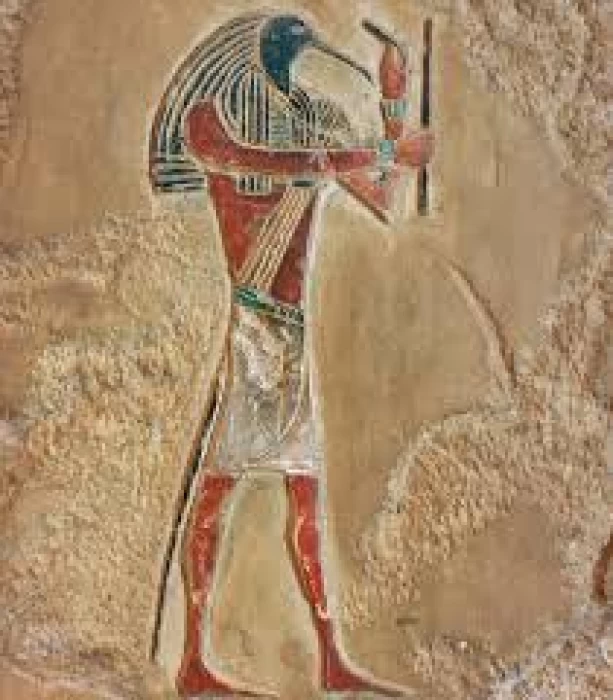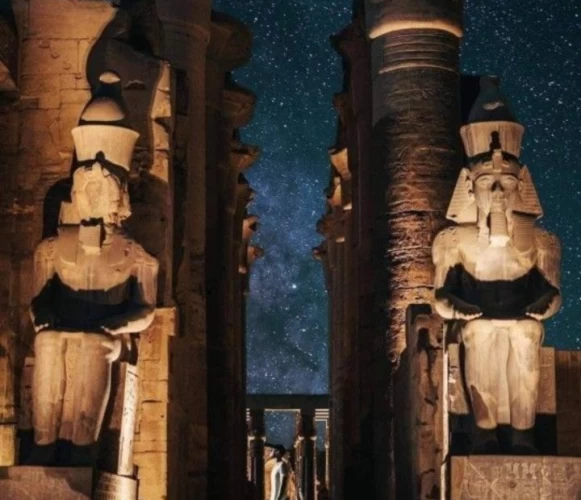
God Thoth | God of Wisdom in Ancient Egypt
Ancient Egyptian Mythology
Thoth: The Deity of Wisdom in Ancient Egypt
Thoth, known in the dialect of ancient Egyptians as Djehuty, was the god of wisdom, writing, and knowledge. He had an incredibly important part in Egyptian mythology, as he was the god who acted as a mediator between the gods and a divine scribe who included all events in writing.
Clients and Representations
Thoth was usually portrayed as being one of the following:
A human male, having the head of an ibis, and holding a writing palette and a reed pen.
A baboon, an animal, connected with the moon and intelligence: the Egyptians.
Roles of Herself as well as Their Importance
Scribe of the Gods: He recorded the deeds of both gods and mortals and controlled the weighing of the heart in the afterlife.
Patron of Writing & Knowledge: He was said to have invented hieroglyphs and instructed mankind in writing.
God of the Moon: Connected with lunar cycles, it was supposed that Thoth would have authority regarding time and the upkeep of cosmic balance.
Arbiter Among the Gods: It played a role in settling disputes.
Worship and Legacy
Thoth was worshipped as the final source of wisdom in Hermopolis (Khemenu), where he had his main cult center. His influence reached boundaries beyond Egypt, for to Greeks, he was Hermes Trismegistus, the legendary figure of Hermetic traditions.
Thoth remains perhaps the most revered deity in Egyptian mythology: intellect, learning, and divine ordination are those that he symbolizes.
God Thoth was among the most important gods of ancient Egypt and in particular, was the authority in the struggle between Horus and Seth for the successorship of Osiris. God Thoth, better known in ancient times as Theut, was the subject of a particular cult in the locality of Khomonou (in Greek Hermopolis ) in middle Egypt.
Thoth's name means 'He of Djehut', which was a province in Lower Egypt. He was the God of the moon, drawing, writing, geometry, wisdom, medicine, music, astronomy, and magic. Thoth was the patron of scribes as the creator of writing. According to a theory, he had made the creation of the world through word effectiveness.
By his own hands, the god Thoth noted in 42 books (the number of Egyptian nomes) all the wisdom of the world. He was also very attached to the goddess Maat as a representative of truth and justice. Thoth was also a god of laws. As a lawyer, legal supervisor, and defender of the dead, he participated in the weighing of the soul during the judgment, the judgment to which the deceased was subjected to know if he was worthy or not to enter the heaven of the afterlife, a traditional scene and drawing in many papyri rolls at the authorized bazaars that we usually visit during our tour to Giza Pyramids and the Egyptian Museum tour.
Thoth was considered a great inventor, having discovered numbers, mathematics, geometry, astronomy, various games (checkers and dice rolls), and especially writing. The priests of Thoth said of him that he created everything from sound and that through hieroglyphics, he also had control of magic and wizards. In fact, it is said that Thoth wrote books that contained the fabulous knowledge of magic and enchantment, books then sealed in a crypt. Another characteristic of Thoth was that of being a lunar deity. Since the moon was one of the foundations of the Egyptian calendar, he was the "gatherer of years" and the "lord of time". Egypt is still a great tourist destination because its history was at the origin of what the world is today.
Latest Articles
Admin
Seabourn Sojourn Cruise Stops in Safaga Port
The Seabourn Sojourn, the flagship vessel of Seabourn Cruise Line's ultra-luxury fleet, was built in 2008 at the T. Mariotti shipyard in Genoa, Italy. Measuring 198 metres, it can accommodate up to 450 guests in its 225 spacious all-suite staterooms.
Admin
Norwegian Sky Cruise Stops in Safaga Port
Norwegian Cruise Line operates a cruise ship called the Norwegian Sky. It was constructed in 1999 and can accommodate 2,004 passengers in addition to 878 crew members. The ship has several dining establishments, lounges and bars, a spa and fitness center, swimming pools, and a number of entertainment areas.
Admin
Explora II Cruise Stops in Safaga Port
Explora II, the second vessel in the Explora Journeys fleet, sets sail in 2024 to redefine luxury cruising. With 461 ocean-front suites, 9 culinary experiences, and 4 pools, this haven of sophistication and sustainability promises an unforgettable "Ocean State of Mind" journey to inspiring destinations.
Admin
Mein Schiff 6 Cruise Stops in Safaga Port
The Mein Schiff 6 is the latest cruise ship in the renowned TUI Cruises fleet, offering passengers a luxurious and sophisticated cruise experience. At 315 metres long, this floating resort features a range of dining options, entertainment, and recreational facilities, including a spa, fitness centre, and sports amenities.
Admin
Mein Schiff 4 Cruise Stops in Safaga Port
When the Mein Schiff 4 cruise ship docks in Safaga, Egypt, passengers are granted access to a realm of ancient wonders. Aboard this state-of-the-art vessel, guests can embark on meticulously curated shore excursions that showcase the region's most iconic landmarks, including the Giza Pyramids, the enigmatic Sphinx, and the remarkable tombs and temples of the Valley of the Kings in Luxor.
Admin
MS Europa Cruise Stops in Safaga Port
The Silver Moon, Silversea's latest flagship, is a luxury cruise ship that offers an exceptional travel experience for Venezuelans exploring Egypt. With a capacity of 596 guests and an impressive 40,700 gross tonnes, the Silver Moon maintains the small-ship intimacy and spacious all-suite accommodations that are the hallmarks of the Silversea brand.















